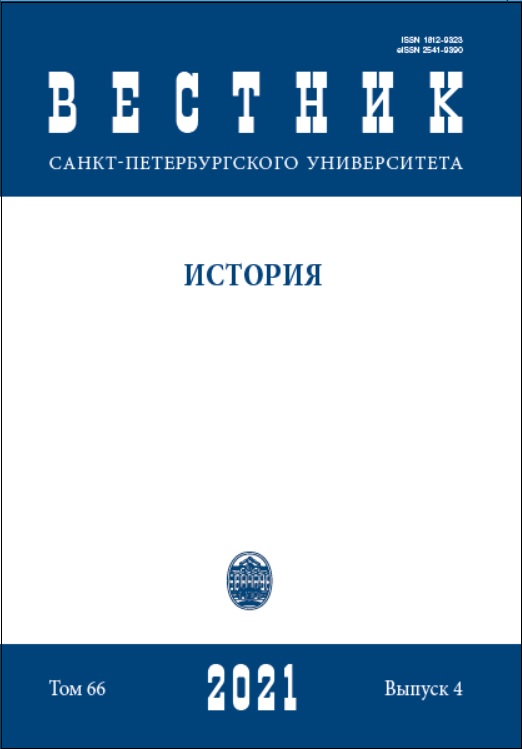Судьба трофейных средневековых рукописей и документов из ганзейских городов
DOI:
https://doi.org/10.21638/spbu02.2021.417Аннотация
В статье отражены основные сведения о судьбе перемещенных в СССР архивных и библиотечных ценностей из Любека, Гамбурга и Бремена. Основное внимание уделено средневековым рукописям и документам. Несмотря на то, что перечисленные города находились в британской оккупационной зоне, их архивные и библиотечные ценности стали советскими военными трофеями в силу того, что в 1942-1944 гг. они были эвакуированы на территорию будущей ГДР. На данный момент известно, что ценности были вывезены в СССР в августе 1946 г. на поезде, следовавшем в Ленинград. Нужно отметить, что вместе с фондами Любека, Гамбурга и Бремена в СССР были вывезены и архивные и библиотечные ценности из Хальберштадта, которые были ранее эвакуированы в тот же район, что и материалы из Любека и Бремена. В дальнейшем средневековые рукописи и документы из Любека, Гамбурга и Бремена, в основном, в Ленинграде не остались. Часть их была передана в ГДР в начале 50-х гг., а остальная часть – рассредоточена по нескольким крупным городам Советского Союза (Москва, Томск, Тбилиси, Ереван). В 80-90-е гг. большая часть ценностей из Любека, Гамбурга и Бремена была возвращена в Германию как из Советского Союза, так и из ставших независимыми Грузии и Армении, однако известно, что некоторая часть хранится в Москве (МГУ, РГБ, РГАДА), Санкт-Петербурге (РНБ) и Томске (ТГУ). Достоверно известно, что, как минимум, один средневековый манускрипт хранится в Ереване. В то же время, крайне мало известно о хронологии перемещений трофеев по территории СССР, а единственная публикация документов об этих перемещениях посвящена, в основном, документам 1945-1946 гг.
Ключевые слова:
перемещенные ценности, Германия, рукописи, средние века, Любек, Гамбург, Бремен
Скачивания
Загрузки
Опубликован
Как цитировать
Выпуск
Раздел
Лицензия
Статьи журнала «Вестник Санкт-Петербургского университета. История» находятся в открытом доступе и распространяются в соответствии с условиями Лицензионного Договора с Санкт-Петербургским государственным университетом, который бесплатно предоставляет авторам неограниченное распространение и самостоятельное архивирование.





